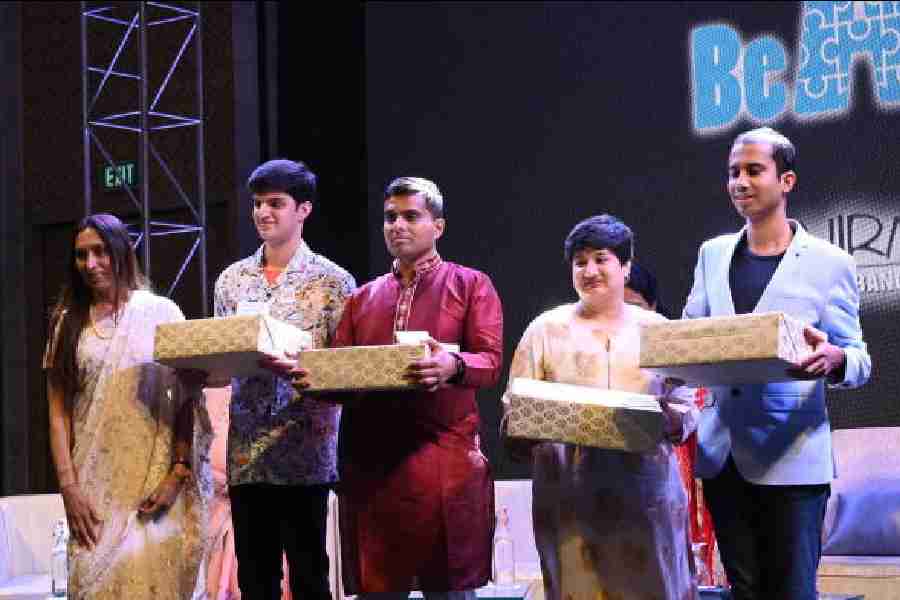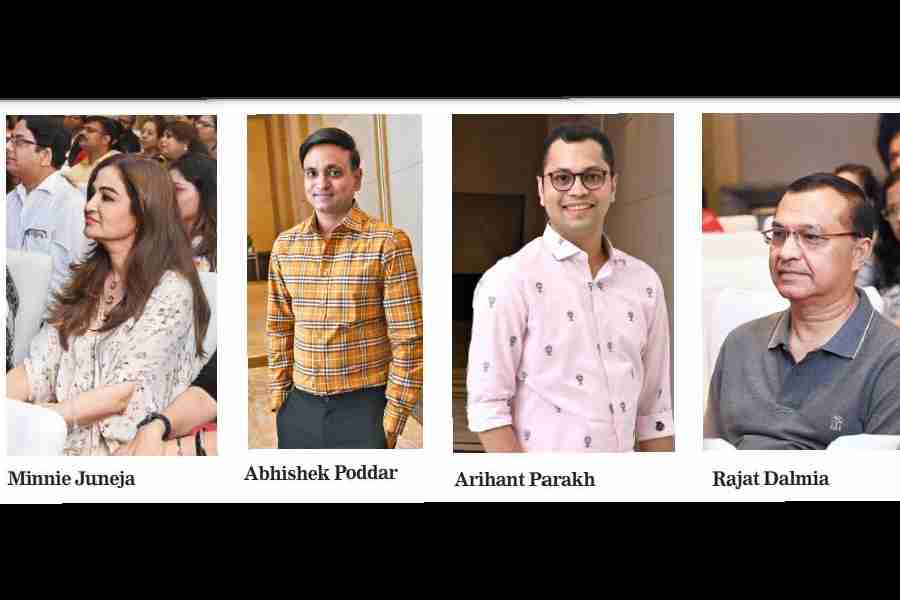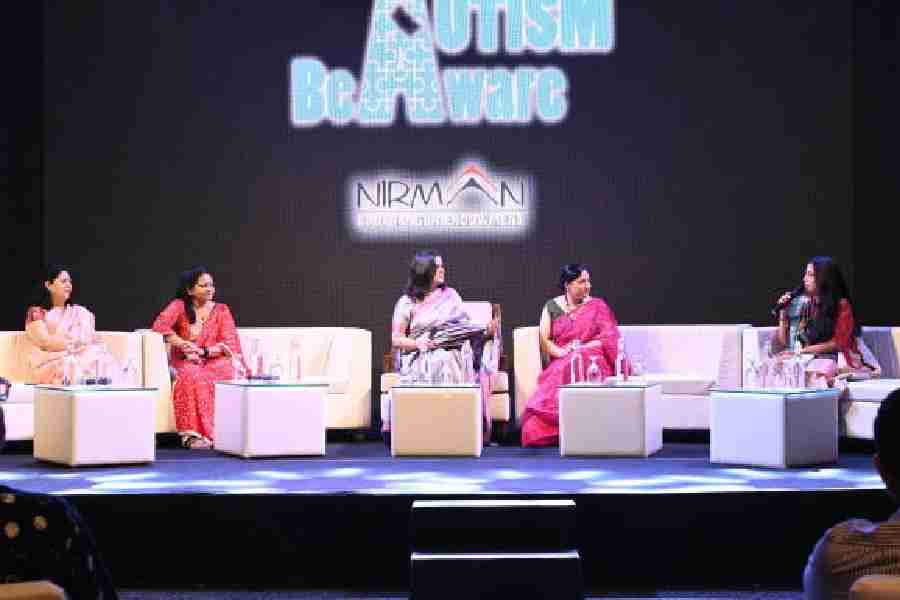The adage ‘More is Less’ applies greatly to the current scenario of autism awareness in the world. Over the last decade, the know-how of the neurodevelopmental condition has certainly improved but a lot more is to be done to make the population more sensitive, empathetic and inclusive. And it is with this motive that Autism BeAware, a talk show was organised at ITC Royal Bengal by Nirmaan B.D. Bangur Endowment on June 17 to celebrate neurodiversity. Moderator Mugdha Kalra helmed the conversation with the utmost sensitivity and touched upon important points.
Calling on everyone in the audience to be ‘the desired change’, Kalra engaged with superstars of the evening — mothers who raised their specially-abled kids into successful young adults who found their niche and are hope and inspiration for many. The introductory talk focussed on each parent discovering the condition among their kids. Sharing her story, Darshana R Sawant said, “Varun was diagnosed in 2000 and it started with an ENT test because he wasn’t reciprocating to what we were saying. Gradually I was given the prognosis of ADHD. I started questioning his therapist who was surprised when I asked if my child is on the spectrum. So, I belong to the time when there were still reservations for autism and similar neurological disorders.”Aarti Khurana would go to a cyber café to dig deep into the condition and find answers to her queries. She said, “I was from a small town in the hills and the awareness was dismal. It was only when I put Amrit in a playschool and people pointed out that she is different that my journey began. I chanced upon a newspaper article where I found the word autism and it gave me a lot of information about it which I could relate to. The right diagnosis came in much later, in 2003-04. It was way too late.” The discussion emphasised the need for early diagnosis.
Moving ahead, Pratibha Bhatnagar shared, “When I was reading a book on autism, suggested by a well-wisher, the sentence ‘Autism is not curable’ shocked me. I was shattered but as I continued reading it said ‘It is manageable’ and that gave me a ray of hope.” She also pointed out how wrong diagnosis at times impedes the process. Anupama Bakshi, a voracious reader, said: “Reading about autism and having a child with autism are two different things. I won’t say it’s a clinical thing. Pranav was a precious child and when he came along and when we saw certain differences, it was brushed aside; there was denial. But I never got influenced and had my sleeves rolled up. My journey was very different as I developed a thick skin very early; it made things easier.”
The talk show later moved on to the need for a change in the system, the ground reality of employment and the measures that are needed to address the problem, especially sensitising co-workers and the need for a forum, at the government level like in Australia where there’s a ministry for autism.

At the end of the session, young adults joined to inspire the audience further. From left: Pranav Bakshi, model; Akshay Bhatnagar, government employee; Amrit Khurana, artist; and Varun R Sawant, chef and marathoner, with Manju Bangur (extreme left).

